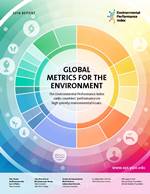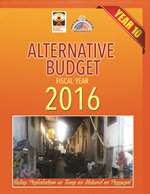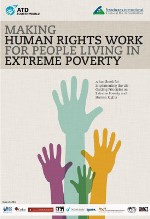Published on Fri, 2016-05-13 10:31
"The growing inequality in the world is perhaps the single most imposing barrier to achieving the Sustainable Development Goals (SDGs) laid out by the 2030 Agenda" say the international trade unions in a document addressed to the United Nations. The representatives of the workers argue that "the deepening of inequality has been accompanied by an erosion of labour institutions" and defend social dialogue as helpful to reverse this trend and tackle inequality. "Leaving no one behind" means tackling inequality, says the submission by the Worker and Trade Union Major Group to the High Level Political Forum (HLPF). |
Published on Fri, 2016-05-13 10:05
The work of central banks is not easily understood and often takes place out of direct public view. Equipped with traditional macroeconomic tools of the trade, central bankers fulfil their main function – to keep prices stable by fighting inflation – through regulation of money supply and interest rates. In addition to this monetary function, some (but not all) central banks are also involved in regulating or supervising the financial sector to ensure the health of financial institutions. In the aftermath of the global financial crisis, central bank participation in sovereign debt rescheduling and support for the stability of the broader financial system is coming into sharper focus. Depending on the mandate, central banks take on other non-monetary functions as well, such as promotion of economic development, job creation, and financial inclusion. Central banks in developing countries that come under the direct influence of the executive branch (which also raises legitimate questions concerning their independence) tend to make active and creative use of non-monetary functions in ways that can directly benefit individuals and households. |
Published on Mon, 2016-05-09 11:57
An “Environmental Performance Index” to be launched on May 9 at the UN claims to align itself with the Sustainable Development Goals (SDGs) but actually hides the impact of unsustainable consumption and production patterns in the North as well as the contributions of the Global South to achieving the internationally agreed targets. The EPI (available here), now in its 10th edition, is authored by the Yale Center for Environmental Law and Policy, in collaboration with the World Economic Forum (Davos). This year’s report claims to have a “parallel approach” to the internationally agreed SDGs in its “use of quantitative metrics to evaluate policy performance” and maintains that “aligning EPI’s indicators with the SDGs provides a baseline for evaluating national performance and shows how far countries are from reaching global targets”. |
Published on Fri, 2016-05-06 12:33
It has been a decade since Social Watch Philippines (SWP) convened the Alternative Budget Initiative (ABI). The consortium has now blossomed to around one hundred and sixty strong civil society organizations and individuals conducting research and lobby efforts in coming out with annual budget analysis, campaigning against lump sum funds, and engaging the national government and the legislature in the budget process by coming out with a civil society-crafted alternative budget, otherwise called as the Orange Book. Throughout the years, the effort of the consortium to directly engage through the budget process has led to the forging of partnerships with concerned agencies and champion legislators, expansion of the ABI network to more organizations and individuals who share SWP and ABI’s development vision through budget advocacy, and the continuing presence of the ABI in House and Senate to present alternative budget proposals. |
Published on Fri, 2016-05-06 11:30
The adoption of the Guiding Principles on Extreme Poverty and Human Rights by the United Nations Human Rights Council in 2012 was a significant victory in the effort to end extreme poverty. It acknowledged that poverty is not simply a matter of lack of income. These Guiding Principles clearly identify actions that governments and other relevant actors should take to ensure that all people are able to enjoy their human rights. ATD Fourth World worked alongside our partners to complete this important document. The next step in their work was to translate these principles into language that everyone can understand and to suggest actions at the local level that groups working alongside people in poverty can put into place. In collaboration with a group of ten international non-governmental organizations active at the field level, they developed an implementation handbook on these Guiding Principles. |
SUSCRIBE TO OUR NEWSLETTER







